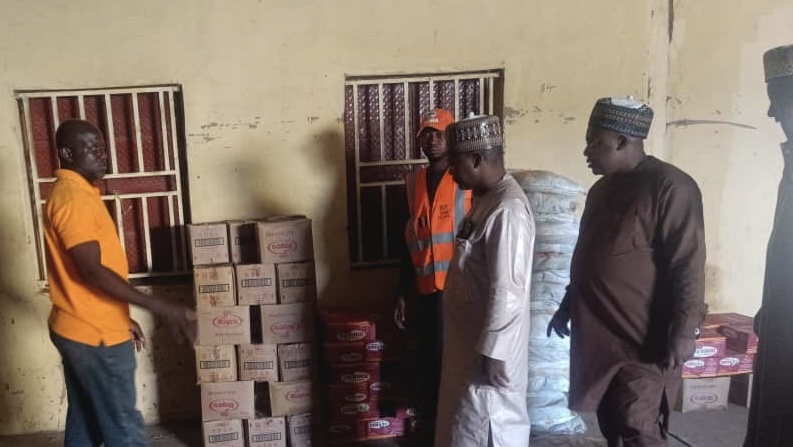NEMA distributes relief material to bomb blast victims in Sokoto

Abdullateef Fowewe
The National Emergency Management Agency has distributed relief materials to victims of the accidental bomb explosion that struck the Gidan-Sama and Runtuwa communities in Binji/Silame Federal Constituency, Sokoto State, in 2024.
The items, mostly food supplies, were handed over by the Head of NEMA’s Sokoto Operations Office, Aliyu Shehu Kafindangi, who was represented by the Head of the Planning Unit, Tukur Abubakar.
In a related development, Plateau State continues to grapple with the impact of a series of deadly attacks by gunmen in the Bokkos Local Government Area. The coordinated assault, which occurred between March 27 and April 2, 2025, ravaged at least six communities—Ruwi, Hurti, Tadai, Gwande, Manguna, and Dafo—leaving no fewer than 52 people dead and displacing over 1,820 residents.
NEMA, in collaboration with the State Emergency Management Agency (SEMA) and the Chairman of Bokkos LGA, is currently assessing conditions in the displacement camps to plan additional humanitarian support.
This was made known in a statement posted on NEMA’s official X (formally Twitter) handle on Sunday.
The statement reads, “The National Emergency Management Agency (NEMA), through its Sokoto Operations Office, has provided humanitarian relief support to victims of the accidental bomb blast that occurred late last year in Gidan-sama and Runtuwa communities of Binji/Silame Federal Constituency, Sokoto State.
“The relief materials, comprising mainly food items, were officially handed over by the Head of Operations, Mr. Aliyu Shehu Kafindangi, who was represented by the Head of the Planning Unit, Tukur Abubakar. The items were presented to Hon. Mani Maishinko, the Member representing Binji/Silame Federal Constituency, who was in turn represented by his legislative aide, Musa Sodangi.
“In his remarks, Hon. Maishinko expressed appreciation to the Federal Government and NEMA for their timely intervention in alleviating the suffering of the affected communities.”




